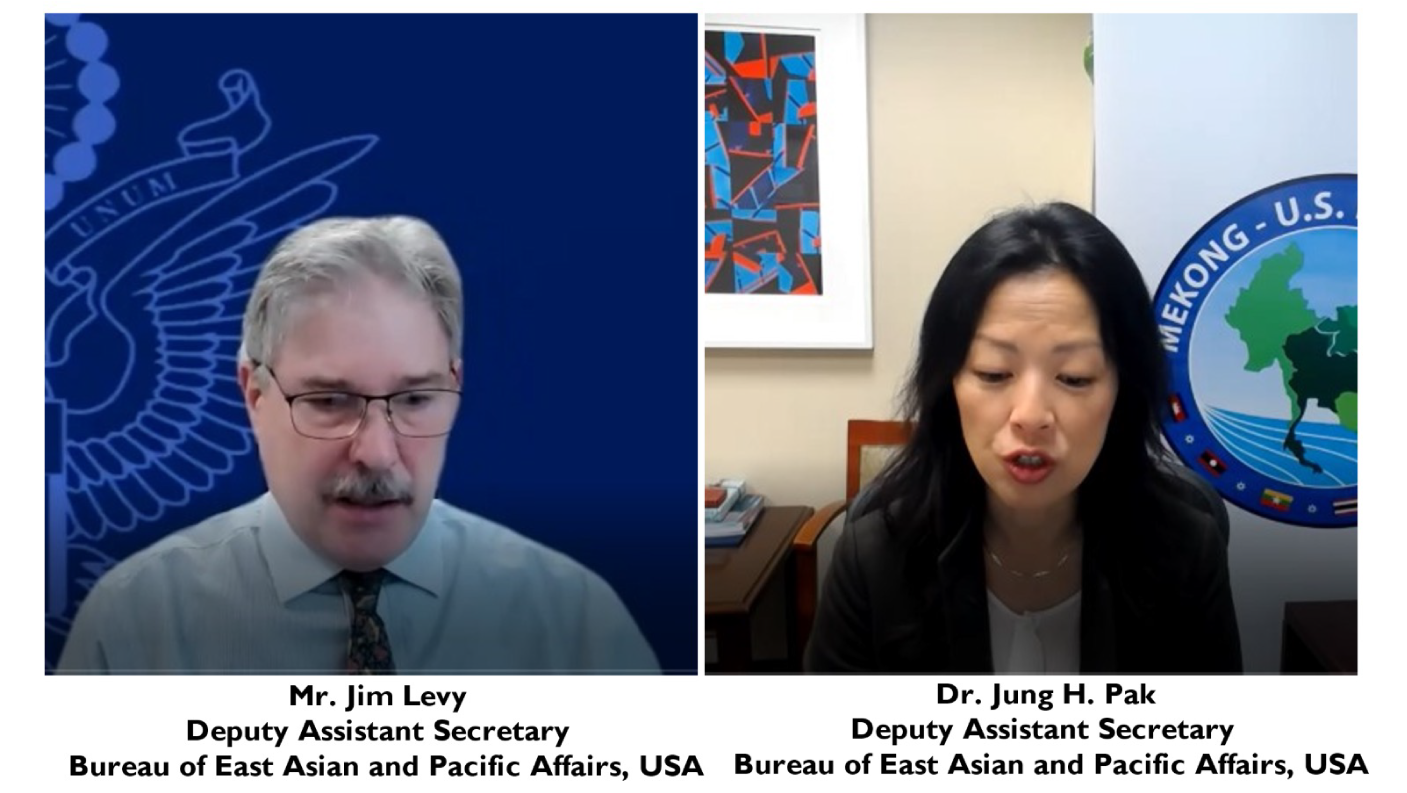Home » Research » Mekong One Health Innovation Program » MOHIP News » MOHIP hosts a course on ‘Health Security, One Health, and Zoonoses’


Mekong One Health Innovation Program (MOHIP) successfully hosts a short course on ‘Health Security, One Health, and Zoonoses’
Mekong One Health Innovation Program (MOHIP) at Michigan State University (MSU) hosted from April 17 – 28, 2023, a short course on ‘Health Security, One Health, and Zoonoses’ in collaboration with One Health University Networks of Lao PDR, Thailand, Viet Nam and Southeast Asian One Health University Network (SAEOHUN). The course offered virtually for One Health professionals from the Lower Mekong region had the objectives to train Mekong researchers/professionals to be successful independent investigators and national and international leaders to address public health challenges and improve health security employing the One Health Approach.
Leveraging the experiences of offering an international short course on zoonotic diseases in 2021, MSU MOHIP team redesigned this course soliciting input from MOHIP country coordinators and stakeholders. Over eight hundred professionals from all over the world expressed interest in the course. About two hundred of them were allowed and hundreds of them attended regularly. The speakers came from many different organizations including World Health Organization (WHO), Food and Agriculture Organization for the UN (FAO), Center for Disease Control and Prevention (CDC), and various universities and nonprofit in the U.S. and outside.

The course covers diverse contents ranging from health security, health security indices, zoonoses (viral, fungal, parasitic), climate change and associated diseases, vector borne diseases, data science, antimicrobial resistance (AMR), One Health principles and practices, predicting and preventing future pandemics, competencies of One Health professionals, and One Health Joint Plan of Action, among others.
Deputy Assistant Secretaries, Mr. Jim Levy and Dr. Jung H. Park from the Bureau of East Asian and Pacific Affairs of the U.S. Government gave the opening and closing remarks, respectively at the short course program.
The course was offered in the Zoom Webinar form, but the course readings were shared through the Google Shared folder and university learning platform, the D2L. Professionals of public health, animal health and environmental health and graduate students pursuing veterinary medicine, human medicine or environmental science or associated programs were among the attendees.
Registration was required to attend the course. Besides virtual lecture sessions, there were panel discussion and some polls/quizzes included in the course.
Those attending 80% of the sessions and writing and submitting the reflective diaries received the “Certification of Course Completion.”


